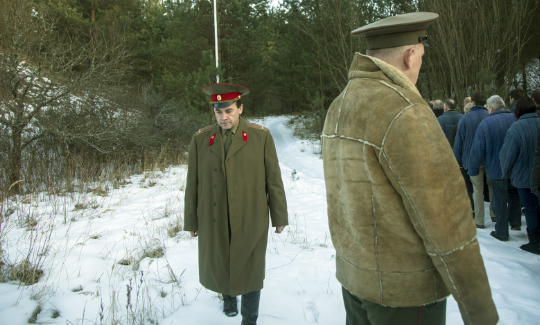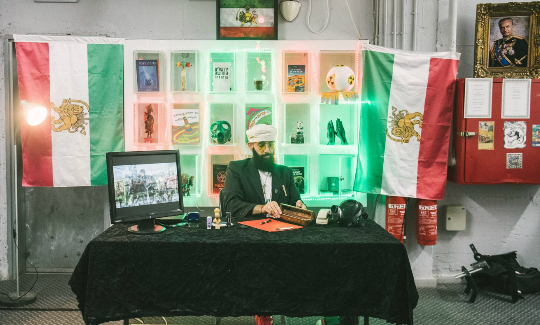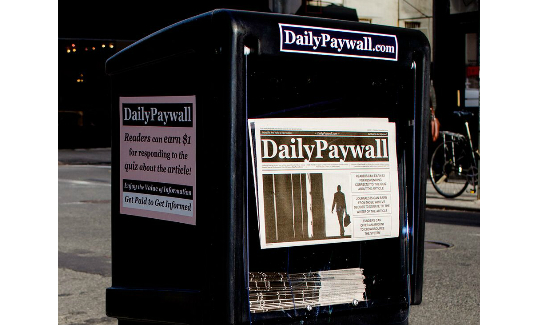"Power, Truth, and Post-Truth"
Curator: Limor Alpern Zered
Saturday, 30.03.19, 20:00
Wednesday, 06.11.19
More info:
04-6030800French philosopher Michel Foucault claimed that power is not the result of institutions, but rather a kind of creative entity in and of itself, defining man in relation to himself, and organizing social relations. This entity spreads its wings over both rulers and ruled, in a complex network that determines the limits of power and its legal enforcement. In contemporary politics power operates as a "post-truth regime," using alternative facts, generalizations, and subtle manipulations to influence the public's emotions and thereby control public discourse. In this age, strong opinion matters more than facts.
The artists participating in the current exhibition seek to criticize this reality and inspire hope for political change –a change that will enable the individual to express his freedom through resistance to the state's power apparatuses. These artists wage a struggle against the power that dictates how "truth" is organized – that is, truth as it is revealed to the public. They do so through strategies of intervention, staging, and interference.
The exhibition presents a range of artistic acts and interventions meant to challenge the way the truth is presented in different socio-political and economic contexts. Some of the works reflect an approach that seeks to act subversively outside the artistic context. Theorist Carrie Lambert-Beatty calls this artistic genre "Parafiction" – a term that denotes the use of techniques of deception and fraud, fabricated identities, impersonation, or production of fictional narratives and events. The works are acts of political imagination with actual consequences in the real world. They are experienced as fact and, under specific circumstances, are granted the status of truth. Thereby the issue of truth gains great importance.
This artistic genre was developed in Eastern European collectives in the 1970s and 1980s. In these countries, ideology was inseparable from historiography – in the way in which the past is narrated in order to generate revolutions and the constitution of ideas and prophecies. The histories and narratives that inspired those regimes are still in place, refusing to vanish and appearing as a psychological and social force.
Many of the artists in the exhibition are influenced by the aesthetics of documentary and mockumentary films and reality shows, aiming to offer a new reading of existing narratives. They seek to reveal unknown historical aspects and open up the possibility of multiple narratives with respect to history. Unlike other works, which play along the boundary between reality and illusion yet remain in the realm of fictional creations, these works tend to diminish the position to the illusory dimension. Prominent among them, yet changing according to context, is the intervention with real historical and cultural aspects.
The artist is able to take part in the dominant political, social, or economic discourse, to appropriate and to consume, yet at the same time to criticize. Accordingly, most of the works in the exhibition are performative, in that they generate acts rather than describing or indicating them. Performance is a highly valuable art form, since it can give rise to new forms of thought that challenge the existing order. The works presented in the show do not cease at the moment the illusion is exposed; they create the non-existent, perhaps so it may exist in the future.
Curator: Limor Alpern Zered





![UBERMORGEN [V]ote-Auction Seal, 2000Carroll /](https://www.hms.org.il/prdPics/events/6967_165714_events_banner_6.jpg?t=1747653254)
